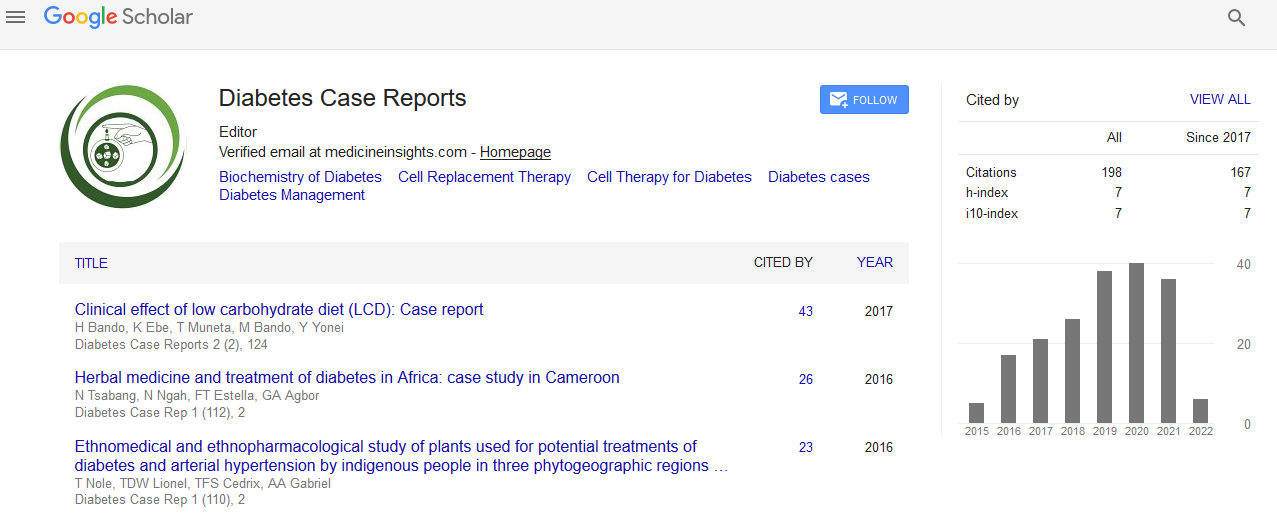Indexed In
- RefSeek
- Hamdard University
- EBSCO A-Z
- Euro Pub
- Google Scholar
Useful Links
Share This Page
Journal Flyer

Open Access Journals
- Agri and Aquaculture
- Biochemistry
- Bioinformatics & Systems Biology
- Business & Management
- Chemistry
- Clinical Sciences
- Engineering
- Food & Nutrition
- General Science
- Genetics & Molecular Biology
- Immunology & Microbiology
- Medical Sciences
- Neuroscience & Psychology
- Nursing & Health Care
- Pharmaceutical Sciences
Abstract
The gamma-glutamylcyclotransferase gene variants interact with smoking and vegetable/fruit intake to influence the risk of type 2 diabetes
Iuliia Azarova
Abstract
Background: Imbalance in the system of redox homeostasis is an important link in the pathogenesis of type2 diabetes (T2D). Gamma-glutamyl cyclotransferase is an antioxidant defense enzyme directly involved in the metabolism of glutathione, an endogenous antioxidant.
Aim: The aim of the study was to examine the association of polymorphisms rs38420 (G>A), rs4270 (T>C), rs6462210 (C>T) and rs28679 (G>A) in GGCT gene with the risk of developing T2D.
Materials & Methods: The study included 1022 T2D patients and 1064 healthy volunteers. Genotyping of GGCT gene polymorphism was performed using iPLEX technology on a MassArray Analyzer 4 genome time-of-flight mass spectrometer (Agena Bioscience).
Results: As a result, for the first time, we identified the association of polymorphism rs4270 in the GGCT gene with reduced risk of T2D in the Russian population. We have also established genetic and environmental interactions associated with predisposition to the disease. Protective effect of gammaglutamyl cyclotransferase gene was observed only in nonsmokers under condition of daily consumption of fresh vegetables and fruits, whereas it was not observed in persons with insufficient consumption of plant foods, as well as in all smoking patients. In patients with T2D, the level of hydrogen peroxide and glutathione monomer was sharply increased compared to the controls. SNP rs4270 was also found to be associated with elevated levels of reduced glutathione in the plasma of type 2 diabetics.
Conclusion: Thus, for the first time it was established that polymorphic variant rs4270 in the GGCT gene is associated with a predisposition to T2D, but its relationship with the disease is modulated by smoking and fresh plant foods consumption.

